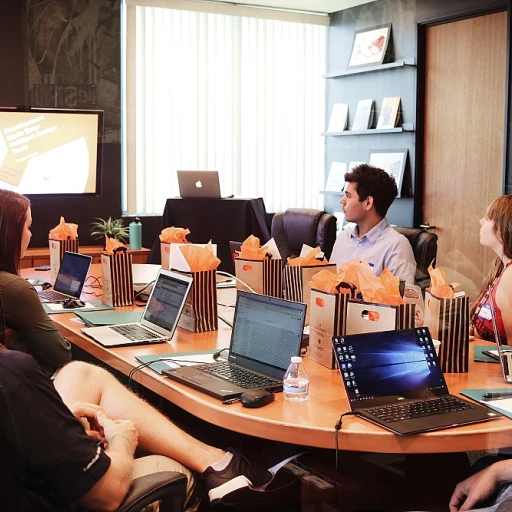
Factors Influencing Background Check Duration
Elements Impacting the Duration of Background Verification
Employers often have to navigate a complex landscape when it comes to running background checks on potential candidates. The duration largely depends on various factors that influence the entire background screening process. For starters, the scope of the information being verified plays a significant role. For instance, a standard pre-employment background check might include criminal record checks, employment history, and education verification, each with its own timeline.
Geographical location can significantly impact the background check process. Some regions, for instance, have more streamlined systems for verifying records than others, resulting in different turnaround times. In areas with less efficient record-keeping systems, it might take longer for required documents or confirmations to be obtained.
Another factor in the duration of background checks is the method used for background screening. The use of old-fashioned processes can lead to more extended delays, while technology plays a crucial role in speeding up these processes by automating parts of the procedure. Advanced tools and databases allow rapid access to criminal and employment records, expediting the overall time taken to complete a check.
However, no matter how efficient technology might be, certain checks will naturally take more time than others. For example, verifying a candidate's employment history or education might involve obtaining confirmations from international sources, which could lead to longer processing times. Companies specializing in background checks often try to optimize the process but are still subject to factors beyond their control, such as third-party delays and system inefficiencies.
Lastly, the industry-specific requirements can also add layers of complexity to the duration of background checks. Different industries might demand varied levels of scrutiny and certification, impacting the time it takes to complete a thorough screening. Understanding these factors can help both employers and job seekers set realistic expectations regarding background check durations, ultimately supporting a smoother hiring timeline.
Types of Background Checks and Their Timelines
Timelines for Different Types of Background Checks
Understanding the timeframes involved with different types of background checks is crucial for managing expectations during the hiring process. Each kind of screening carries its own timeline, primarily shaped by the background check's purpose and the depth of the investigation.- Criminal Background Checks: These are a fundamental part of the background screening process and often the most common type of check requested by employers. The turnaround time for criminal records verification can vary greatly, usually between one to five business days. Factors that influence this duration include how many jurisdictions need to be checked and the accessibility of records.
- Employment Verification: Verifying a candidate's employment history can take longer than a criminal background check because it often involves contacting previous employers directly. This process might extend over several business days, occasionally impacted by delays from busy HR departments or hard-to-reach past employers.
- Education Verification: Like employment history checks, the timeframe for education verification depends on the responsiveness of educational institutions. Typically, this can take two to three business days, but this may extend if records need to be retrieved from multiple schools, especially international institutions.
- Pre-employment Credit Checks: Though not as common for every role, credit checks can be a crucial screening component for positions involving financial responsibilities. These checks can usually be completed within one day, unless further investigation is required.
- Professional License Verification: This check, vital for roles requiring specific certifications or licenses, can take from two days to a week. The length mainly depends on the issuing organization’s response time and internal processes.
The Role of Technology in Speeding Up Background Checks
The Influence of Digital Advances in Reducing Waiting Times
The evolution of technology has significantly transformed the background check domain, streamlining processes and improving turnaround times for both candidates and employers. In today's digital era, automation tools are increasingly deployed to sift through intricate data layers rapidly, enhancing efficiency in employment background screenings. Modern technology has enabled the digitalization of records, a factor that expedites access to essential information such as criminal records, employment history, and education verification. This technological advancement reduces the reliance on traditional methods, which can often lead to delays in the hiring process. For example, access to criminal record databases that were once paper-based is now immediate, thanks to digital integration. While technology plays a pivotal role in speeding up background check processes, certain checks still require a manual component, preventing them from achieving instant results. Employment verification is an area where digital tools may not always have comprehensive access, requiring human intervention to confirm a candidate’s past employment. This aspect demonstrates the balance between automated systems and the necessity for human oversight. Nonetheless, technology brings several benefits across the screening process that cannot be overlooked:- Real-time Data Access: Instant access to current databases for criminal records and other vital information.
- Automated Reporting: Systematically generates comprehensive check reports, reducing human error.
- Efficient Communication: Allows seamless interaction between background check companies and employers, minimizing potential delays in the employment screening process.
Common Delays in Background Check Processes
Understanding Common Delays in the Background Check Process
The background check process is an integral part of the hiring process, yet it often faces delays that can frustrate both employers and candidates. The most efficient background screening processes can still encounter hiccups that extend turnaround times beyond the usual business days expected. Exploring the reasons behind these delays helps in understanding why a background check report might take longer than anticipated and what factors contribute to a prolonged screening process.- Incomplete or Inaccurate Information: One common source of delays is the submission of incomplete or inaccurate candidate information. Errors in employment history, misspelled names, or incorrect Social Security numbers can all result in longer processing times as these issues need to be rectified.
- Verification Processes: Employment verification and education verification are often manual components of the check process; employers may delay response times. Depending on their verification processes, companies might need extra time to confirm a candidate's previous employment or academic credentials, leading to a longer background screening period.
- Public Records Access: The retrieval of criminal records or other public records can encounter delays due to discrepancies in how different jurisdictions handle access to information. Counties updating their systems or requiring manual searches contribute to longer criminal background check turnaround times.
- Volume of Requests: Certain periods can see a high volume of background check requests, such as during a common hiring season or economic upturns, resulting in bottlenecks. Consequently, the processing times of background checks might extend as screening companies handle more requests than usual.
- Regulatory Compliances: Legal restrictions and compliance requirements, including fair employment screening practices, might impose extra steps or waiting periods in the process to ensure the candidate‘s privacy and data protection, which can lengthen the overall timeline.
Industry-Specific Background Check Timelines
Industry Variations in Background Check Timelines
Different industries have diverse requirements when it comes to background screening timelines. This is largely due to the unique nature of the jobs and the specific checks needed, meaning that the time taken can vary significantly.
For instance, in industries like healthcare and education, background checks tend to be more comprehensive and take longer due to the necessity of ensuring complete compliance with strict regulations. Employment background checks in these sectors not only cover the usual history and criminal record reviews but also delve deeply into education verification and thorough criminal backgrounds.
In contrast, sectors such as retail or hospitality might prioritize a faster turnaround in their hiring process to meet high staffing demands during peak seasons. Here, companies often opt for expedited background screening processes, focusing on the essentials like quick criminal records checks and basic employment verification.
The financial sector also exemplifies longer background checks due to the sensitive nature of the data and operations they handle. Rigorous employment history checks and in-depth criminal screening are customary to uphold security and trust within the industry.
Ultimately, the duration of checks often aligns with the level of risk associated with the job. While some industries demand detailed checks with a longer time frame of several business days, others might suffice with more basic screenings conducted within just a few days. Employers and candidates must be aware of these industry-specific variations to better predict potential delays and the overall timeline during the hiring process.
Future Trends in Background Check Durations
Emerging Trends in Background Check Timelines
As the landscape of employment background checks continues to evolve, several trends are emerging that could significantly impact the duration of the screening process. These trends are shaped by technological advancements, regulatory changes, and shifting employer expectations.
Technological Advancements and Automation
Technology is playing a pivotal role in reducing the time it takes to complete background checks. Automated systems and artificial intelligence are being increasingly integrated into the background check process, allowing for faster data retrieval and analysis. This not only speeds up the criminal record and employment verification processes but also enhances accuracy by minimizing human error.
Regulatory Changes and Compliance
Changes in legislation and compliance requirements can affect how long background checks take. As governments introduce new regulations to protect candidate privacy and ensure fair hiring practices, companies must adapt their screening processes accordingly. This can sometimes lead to longer turnaround times as employers ensure compliance with these new laws.
Increased Demand for Comprehensive Checks
Employers are increasingly seeking more comprehensive background checks, including education verification and detailed employment history reviews. While these thorough checks provide a more complete picture of a candidate's background, they can also extend the time required to generate a complete check report.
Focus on Reducing Turnaround Times
Despite the complexities involved, there is a strong focus on reducing turnaround times. Employers are under pressure to fill positions quickly, and long background check processes can delay the hiring process. Companies are investing in more efficient systems and partnering with background screening providers who can deliver faster results without compromising on quality.
Industry-Specific Variations
Different industries have varying requirements for background checks, which can influence how long the process takes. For instance, sectors with stringent security needs, such as finance or healthcare, may require more extensive checks, leading to longer turnaround times. Understanding these industry-specific timelines can help candidates and employers set realistic expectations.
In conclusion, while the future of background check durations is influenced by multiple factors, the overarching trend is towards faster, more efficient processes. By leveraging technology and adapting to regulatory changes, employers can streamline their screening processes, ultimately reducing delays and improving the overall hiring experience.













